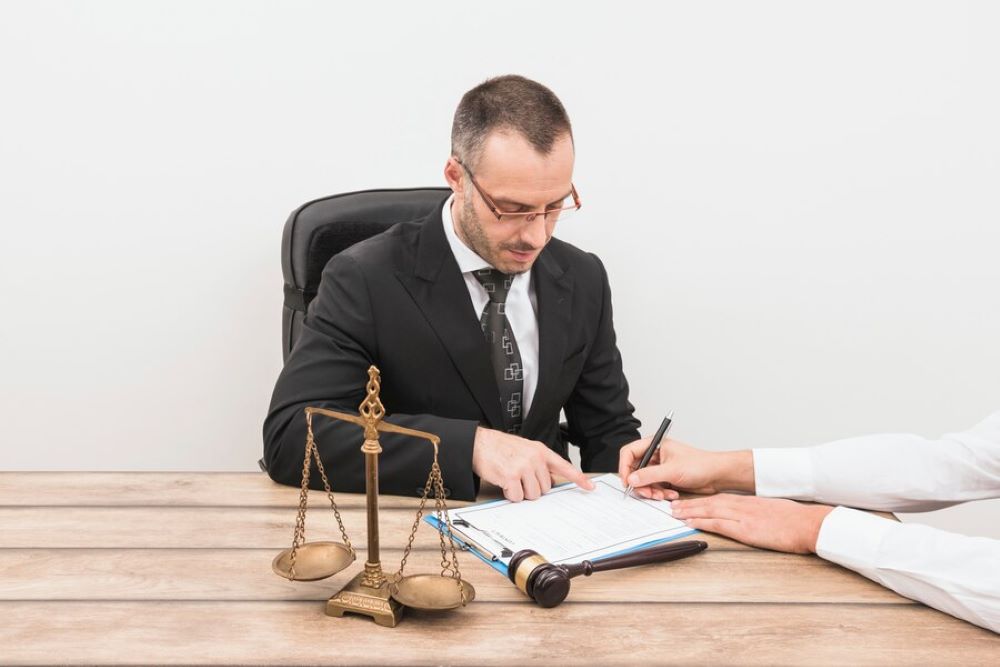
Have you ever found yourself embroiled in a legal battle that seems to drag on endlessly, draining your time, energy, and resources? Perhaps you’ve been on the receiving end of a lawsuit that appears to be nothing more than a frivolous attempt to inconvenience you. In such frustrating situations, many individuals wonder if they can turn the tables and counter sue the other party for wasting their time. This article will delve into the concept of wrongful litigation, exploring whether you can counter sue someone for wasting your time, how to deal with frivolous lawsuits, and the legal grounds for seeking recourse in such scenarios.
Understanding Wrongful Litigation
Wrongful litigation, often referred to as frivolous litigation, occurs when someone initiates or maintains a lawsuit without a valid legal basis. Frivolous lawsuits can take various forms, ranging from nuisance suits intended to harass or intimidate the other party to claims lacking any factual or legal merit. Such lawsuits not only burden the court system but also inflict significant financial and emotional stress on the defendant.
Can You Sue Someone Who’s Suing You?
Yes, you can sue someone who’s suing you, but it’s not always straightforward. In many jurisdictions, defendants have the right to file a counterclaim against the party who initiated the original lawsuit. A counterclaim is a legal action brought by the defendant against the plaintiff in response to the claims asserted in the original complaint. It allows the defendant to assert their own claims for relief, which may include seeking damages for the time and resources wasted due to the frivolous lawsuit.
Can You Sue for Wrongful Lawsuits?
Indeed, you can sue for wrongful lawsuits, but it’s crucial to understand that not all unsuccessful lawsuits qualify as wrongful litigation. To prevail in a countersuit for wasting time, you must demonstrate that the plaintiff knew or should have known that their claims lacked legal merit or were pursued in bad faith.
Is a Countersuit the Same as a Defense?
No, a countersuit is not the same as a defense. While both involve responding to legal claims, they serve different purposes and follow different procedural paths.
A defense aims to refute the plaintiff’s claims and avoid liability. It challenges the validity or sufficiency of the plaintiff’s allegations and may involve asserting affirmative defenses, such as statute of limitations or lack of jurisdiction.
A countersuit, on the other hand, asserts new claims for relief by the defendant against the plaintiff. These claims may arise from the same set of facts or transactions underlying the original lawsuit or may be unrelated but fall within the court’s jurisdiction.
How to Stop a Frivolous Lawsuit and Deal With Litigious People?
Dealing with a frivolous lawsuit can be a daunting and stressful experience, but there are steps you can take to protect your rights and minimize the impact of such legal proceedings:
Seek Legal Advice: If you’re facing a frivolous lawsuit, it’s essential to consult with an experienced attorney who can assess your case, advise you on your legal options, and formulate an effective strategy for defense or countersuit.
Gather Evidence: Documenting evidence relevant to your case is crucial in refuting the plaintiff’s claims and supporting your defense or countersuit. This may include correspondence, contracts, financial records, witness statements, or any other pertinent information.
Evaluate Settlement Options: In some cases, it may be advantageous to explore settlement negotiations with the plaintiff to resolve the dispute outside of court. A negotiated settlement can help you avoid the time, expense, and uncertainty of protracted litigation while achieving a mutually acceptable outcome.
Defend Your Rights: If settlement efforts prove unsuccessful or if you believe that the plaintiff’s claims lack merit, vigorously defend your rights in court. Presenting a strong defense backed by compelling evidence can compel the plaintiff to reconsider their position or persuade the court to dismiss the lawsuit.
Pursue Legal Remedies: If you prevail in defending against a frivolous lawsuit or if the court grants your countersuit for wasting time, you may be entitled to recover damages, attorney fees, and other legal costs incurred as a result of the wrongful litigation.
Types of Damages Sought in a Wrongful Litigation Lawsuit
In a wrongful litigation lawsuit or countersuit, the defendant may seek various types of damages to compensate for the harm caused by the frivolous lawsuit. These damages may include:
Compensatory Damages: Reimbursement for financial losses, legal expenses, and damage to reputation incurred due to the frivolous lawsuit.
Punitive Damages: Monetary awards intended to punish the plaintiff for their misconduct and deter similar behavior in the future.
Attorney Fees and Costs: Recovery of legal fees and litigation expenses borne by the defendant in defending against the frivolous lawsuit.
Emotional Distress Damages: Compensation for mental anguish, stress, and humiliation caused by the frivolous litigation, although quantifying these damages can be challenging.
Lost Time and Opportunity Costs: Compensation for the time, opportunity costs, and missed opportunities resulting from dealing with the frivolous lawsuit.
Legal Grounds for Suing Someone for Wrongful Litigation
To succeed in suing someone for wrongful litigation, you must establish the following legal grounds:
Lack of Legal Merit: You must demonstrate that the plaintiff’s claims were objectively baseless, frivolous, or lacked any legal or factual support. This may involve showing that the claims were based on false or misleading information, or that the plaintiff failed to meet the burden of proof required to sustain their legal claims.
Bad Faith: You must prove that the plaintiff initiated the lawsuit with malicious intent or for ulterior motives, such as harassment, intimidation, or financial gain. This may involve presenting evidence of the plaintiff’s prior history of abusive litigation, coercion, or fraudulent conduct.
Economic Harm: You must establish that you suffered actual economic harm as a result of the wrongful litigation, such as financial losses, legal expenses, or damage to your reputation or business interests.
Causation: You must demonstrate a causal connection between the plaintiff’s wrongful conduct and the harm suffered by you. In other words, you must show that most frivolous lawsuits directly resulted in the economic and non-economic damages you incurred.
Proving that Someone Has Wrongfully Sued You
Proving that someone has wrongfully sued you requires careful documentation, strategic planning, and persuasive advocacy. To build a strong case against the plaintiff, consider the following strategies:
Document Everything: Keep detailed records of all communications, transactions, and interactions related to the lawsuit. This includes emails, letters, contracts, invoices, receipts, and any other relevant documents that support your defense or countersuit.
Gather Evidence: Collect evidence that undermines the plaintiff’s claims and casts doubt on their credibility. This may include witness statements, expert opinions, physical evidence, photographs, videos, or other documentary evidence that contradicts the plaintiff’s allegations.
Consult with Experts: Consider seeking assistance from legal experts, such as attorneys, forensic accountants, or industry professionals, who can provide specialized knowledge and expertise relevant to your case.
Present a Persuasive Narrative: Develop a coherent and compelling narrative that explains your side of the story and highlights the injustice of the frivolous claim. Use clear and persuasive language to convey your arguments to the judge or jury and evoke empathy for your plight.
Anticipate and Address Counterarguments: Anticipate the plaintiff’s potential counterarguments and objections, and preemptively address them in your legal filings, motions, and oral arguments.
Exceptions to Suing Someone for Wrongfully Suing You
While suing someone for wrongfully suing you is generally permissible under the law, there are certain exceptions and limitations to consider:
Immunity: Government entities, public officials, and certain individuals may be immune from liability for wrongful litigation under certain circumstances. Immunity laws vary by jurisdiction and may shield government entities and officials from civil liability for their actions.
Frivolous Claims Act: Some jurisdictions have enacted Frivolous Claims Acts or similar legislation that imposes penalties on parties who file frivolous lawsuits. These laws may provide for sanctions, fines, or other disciplinary measures against plaintiffs who abuse the legal system.
Judicial Discretion: Judges have broad discretion to manage and control legal proceedings in their courtrooms, including the authority to sanction parties for abusive litigation practices.
Statute of Limitations: There may be time limitations, known as statutes of limitations, for filing claims or counterclaims for wrongful litigation. It’s essential to consult with an personal injury lawyer to ensure compliance with applicable deadlines and procedural requirements.
The Role of an Attorney in Dealing with Frivolous Lawsuits
When faced with a frivolous suit, the expertise and guidance of an attorney can be invaluable. These legal professionals offer a range of services aimed at protecting your rights and achieving a favorable resolution to your case. From evaluating the merits of the lawsuit to representing you in court, attorneys play a pivotal role in navigating the complexities of the legal system. Here’s how they can assist you:
Legal Expertise: Attorneys have a deep understanding of the law and can provide informed guidance on the best course of action.
Case Evaluation: They assess the merits of the lawsuit filed against you and identify any grounds for countersuing.
Defense Strategy: Attorneys develop a strategic defense tailored to your case, challenging the plaintiff’s claims and gathering evidence to support your defense.
Counterclaim Preparation: If warranted, they assist in preparing and filing a counterclaim against the plaintiff for frivolous litigation.
Negotiation and Settlement: Attorneys engage in negotiations to explore the possibility of reaching a settlement agreement, avoiding further litigation.
Court Representation: They serve as your advocate in small claims court, presenting your case persuasively to the judge or jury.
Legal Documentation: Attorneys handle the preparation and filing of necessary legal documents throughout the litigation process.
Emotional Support: They provide support and reassurance, helping you navigate the legal process with confidence.

Unleash the Power of Justice with BLG: Let’s Fight Back Against Frivolous Lawsuits
While dealing with frivolous litigation can be a frustrating and time-consuming experience, it is possible to seek recourse against the party responsible for wasting your time. By understanding the legal grounds for countersuing and enlisting the help of a qualified attorney, you can effectively defend against frivolous lawsuits and protect your rights in the legal system. Remember, seeking legal advice early in the process is crucial to developing a successful defense strategy and maximizing your chances of a favorable outcome.
Are you tired of wasting your precious time and resources battling frivolous lawsuits? It’s time to take a stand and fight back with BLG by your side. Our team of experienced attorneys is dedicated to helping you navigate the complexities of wrongful litigation and seek justice for the time wasted and the hardships endured.
Contact us today for a free consultation.




